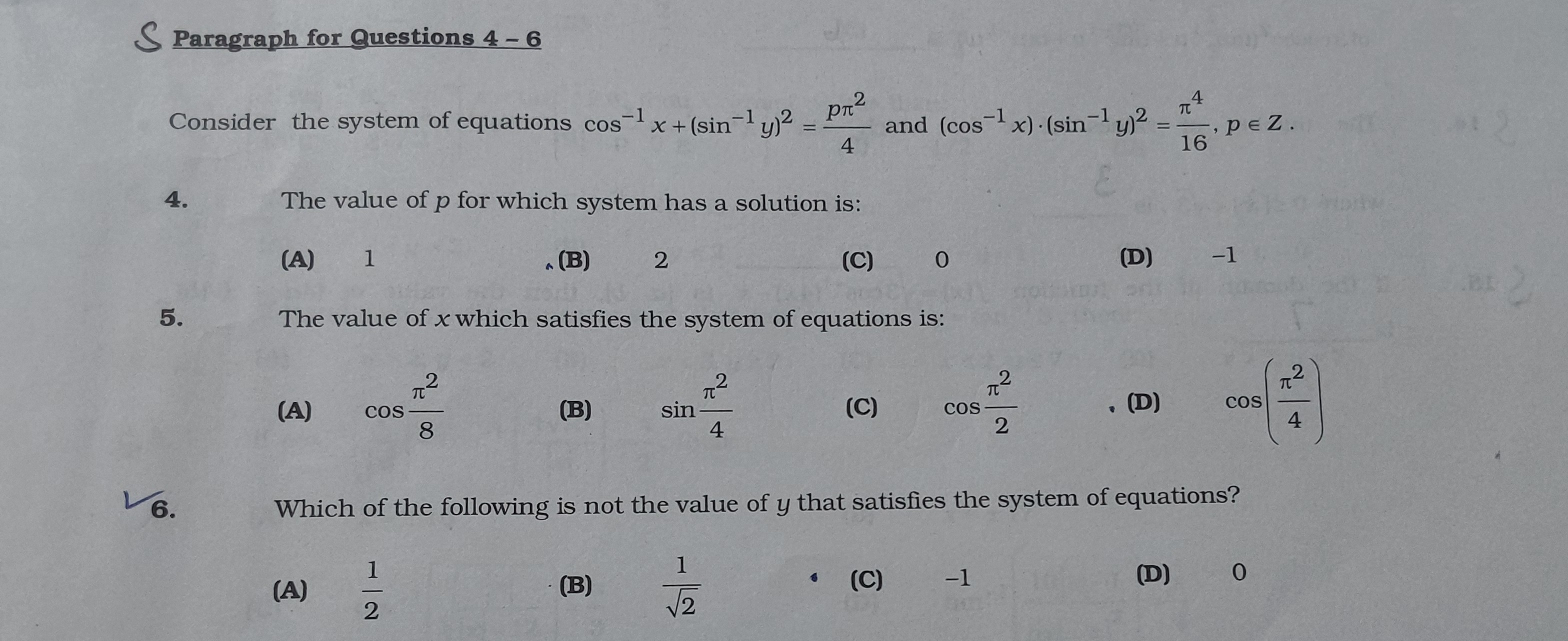Question
Question: Consider the system of equations $\cos^{-1}x + (\sin^{-1}y)^2 = \frac{p\pi^2}{4}$ and $(\cos^{-1}x) ...
Consider the system of equations cos−1x+(sin−1y)2=4pπ2 and (cos−1x)⋅(sin−1y)2=16π4,p∈Z.
The value of p for which system has a solution is:

1
2
0
-1
2
Solution
Let A=cos−1x and B=(sin−1y)2. The given system of equations is:
- A+B=4pπ2
- A⋅B=16π4
A and B are the roots of the quadratic equation t2−(A+B)t+AB=0. Substituting the expressions from the given equations: t2−4pπ2t+16π4=0
For real solutions for t (i.e., for A and B), the discriminant must be non-negative: D=(4pπ2)2−4⋅1⋅16π4≥0 D=16p2π4−4π4≥0 16π4(p2−4)≥0 Since 16π4>0, we must have p2−4≥0, which implies p2≥4. So, p≥2 or p≤−2.
Since A=cos−1x≥0 and B=(sin−1y)2≥0, both roots must be non-negative. The sum A+B=4pπ2 must be non-negative, which implies p≥0. Combining p≥0 with (p≥2 or p≤−2), we conclude that p≥2. Since p∈Z, possible values for p are 2,3,4,….
After checking the ranges of A and B, we find that the only possible value is p=2.
